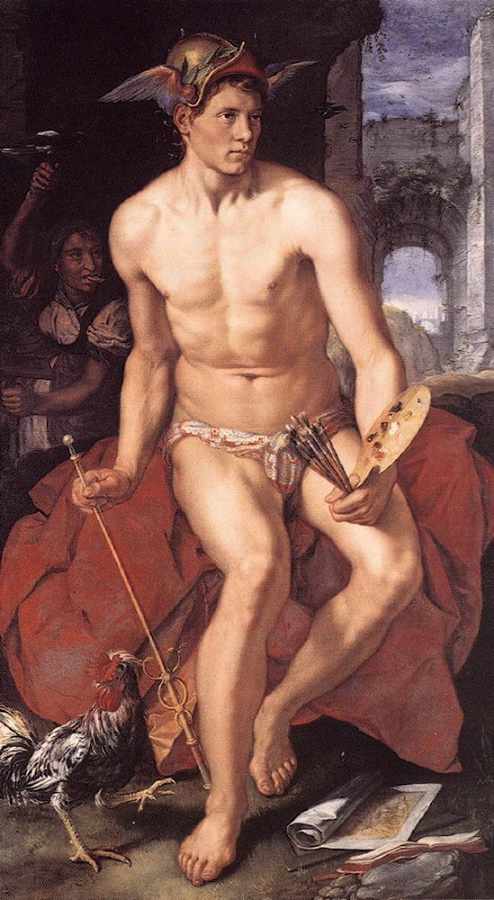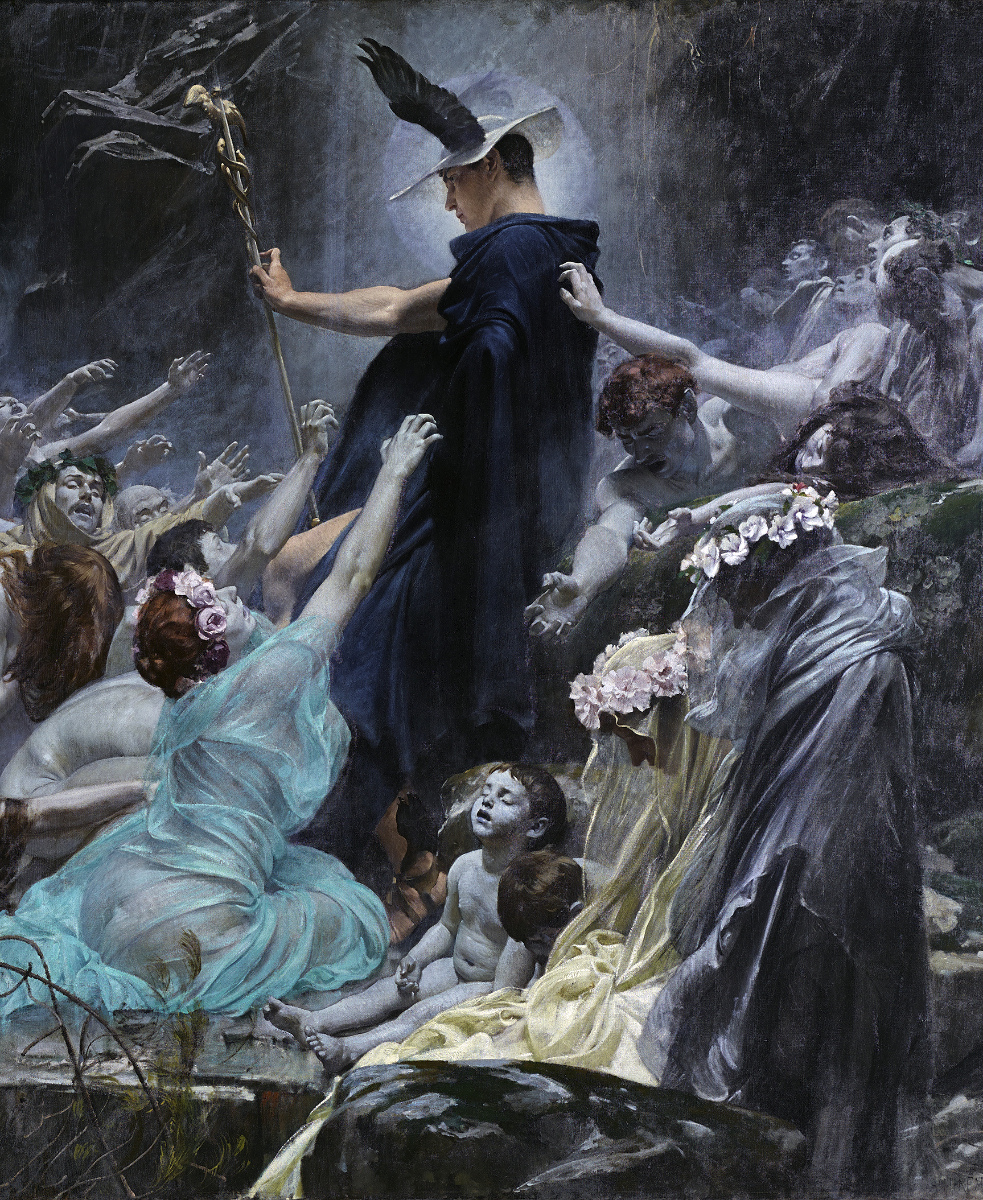Mercury is a major god in Roman religion and mythology, being one of the 12 Dii Consentes within the ancient Roman pantheon. He is the god of financial gain, commerce, eloquence, messages, communication (including divination), travelers, boundaries, luck, trickery, and thieves; he also serves as the guide of souls to the underworld. In Roman mythology, he was considered to be either the son of Maia, one of the seven daughters of the Titan Atlas, and Jupiter, or of Caelus and Dies. In his earliest forms, he appears to have been related to the Etruscan deity Turms; both gods share characteristics with the Greek god Hermes. He is often depicted holding the caduceus in his left hand. Similar to his Greek equivalent Hermes, he was awarded a magic wand by Apollo, which later turned into the caduceus, the staff with intertwined snakes. Like Hermes, he was also a god of messages, eloquence and of trade, particularly of the grain trade. He was the patron of travelers and the god of thievery as well. Mercury was also considered a god of abundance and commercial success, particularly in Gaul, where he was said to have been particularly revered. He was also, like Hermes, the Romans’ psychopomp, leading newly deceased souls to the afterlife. Additionally, Ovid wrote that Mercury carried Morpheus’ dreams from the valley of Somnus to sleeping humans.
| Alias Mercury |
| Real Names/Alt Names Mercury, Hermes |
| Characteristics Trickster, Myths & Legends, Deity, Immortal, Prehuman Epoch, Greek, Italian |
| Creators/Key Contributors ○ |
| First Appearance Greek mythology |
| First Publisher ○ |
| Appearance List Literature: Homer’s Odyssey (c. 8th century BCE, English 1614), Homer’s Iliad (c. 8th century BC), Virgil’s Aeneid (29 to 19 BC), Metamorphoses (poem) by Ovid (8 CE), plays by Aeschylus, Sophocles, Euripides, Plato, Shakespeare, Dante Alighieri’s Divine Comedy (1308–1320), etc. America’s Greatest Comics #5, Boy Comics #10, Hit Comics #31, 33, Humdinger vol. 1 #4, Kid Eternity #5, 9, National Comics #32, Wham Comics #1, Yellowjacket Comics #1-10. |
| Sample Read Bulfinch’s Mythology by Thomas Bulfinch [Internet Archive] |
| Description Mercury is a major god in Roman religion and mythology, being one of the 12 Dii Consentes within the ancient Roman pantheon. He is the god of financial gain, commerce, eloquence, messages, communication (including divination), travelers, boundaries, luck, trickery, and thieves; he also serves as the guide of souls to the underworld. In Roman mythology, he was considered to be either the son of Maia, one of the seven daughters of the Titan Atlas, and Jupiter, or of Caelus and Dies. In his earliest forms, he appears to have been related to the Etruscan deity Turms; both gods share characteristics with the Greek god Hermes. He is often depicted holding the caduceus in his left hand. Similar to his Greek equivalent Hermes, he was awarded a magic wand by Apollo, which later turned into the caduceus, the staff with intertwined snakes. Like Hermes, he was also a god of messages, eloquence and of trade, particularly of the grain trade. He was the patron of travelers and the god of thievery as well. Mercury was also considered a god of abundance and commercial success, particularly in Gaul, where he was said to have been particularly revered. He was also, like Hermes, the Romans’ psychopomp, leading newly deceased souls to the afterlife. Additionally, Ovid wrote that Mercury carried Morpheus’ dreams from the valley of Somnus to sleeping humans. |
| Source Mercury (mythology) – Wikipedia |



